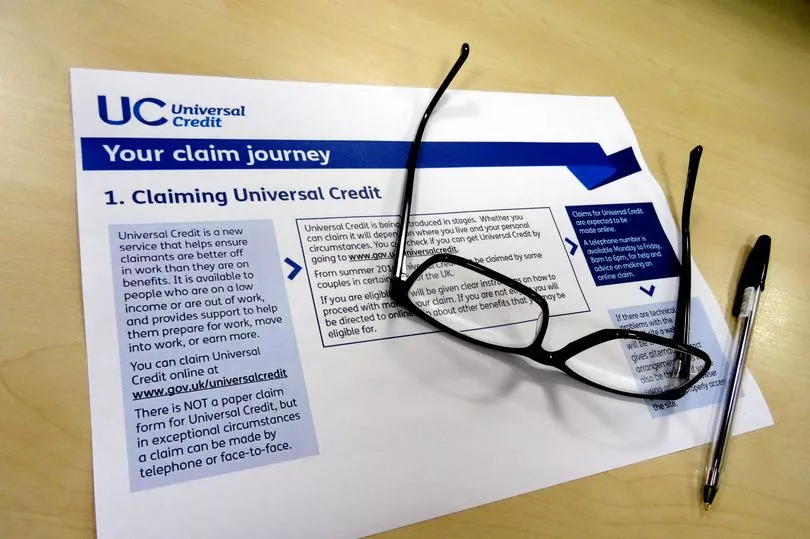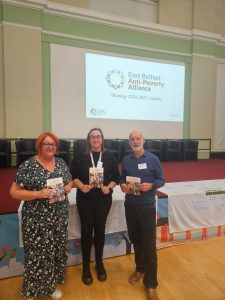Concerns as claimants move from Tax Credits to UC
20 November 2023
By Samantha Gallagher
In April 2023, the Department for Communities announced that they were commencing the first phase of Managed Migration in Northern Ireland and that the first legacy benefit to move to Universal Credit (UC) would be Tax Credits (both Child Tax Credit and Working Tax Credit).
In keeping with DWP, they launched two pilots in order to obtain “learnings” before going live later in 2023. They choose two areas, one urban, Andersonstown in Belfast, and the other rural, County Fermanagh.
In May 2023, Community Advice Fermanagh joined Advice NI in our launch of the support required
during this Move to UC and I spoke at Stormont about my concerns about the impact moving to UC would have on rural communities.
During the course of the pilot, each of the key concerns I raised in that speech in Stormont sadly came to the fore, and indeed further complexities continue to arise out the matter:
5 week wait
When moving to UC, there is a five-week wait until the first payment. During the pilot it became evident that staff in the jobs and benefits offices were not advising those moving to UC of their entitlement to apply for a Contingency Fund Grant (CFG). These grants are to help those waiting 5 weeks for their first payment to not get into debt in that time. CFG is a non-repayable grant. When DfC were providing advice for financial assistance during the 5 week wait, it was to push an “advanced payment” on claimants. An advanced payment is a loan and requires to be repaid, thus starting your benefit journey off in debt. We continue to raise this as a concern and highlight the need to ensure everyone moving to UC avails of the Contingency Fund Grant.
Free School Meals
The eligibility earnings threshold for Free School Meals is lower under the UC rules than that of Tax Credits. There is no transitional protection for this shortfall. This will mean that some families who are in paid work, receive tax credits, and have the benefit of free school meals will no longer have this benefit when they move to UC.
During the pilot, we dealt with families who were just over this new threshold and with the rising costs in food, they are in a state of panic about where they are to get this additional money to cover the cost of school dinners. All of these families were working.
In Fermanagh, as of 2022, there were 4962 children in receipt of free school meals. Some of these children will now go hungry because of the move to UC. As there are a lot of families in the west in poorly paid jobs and there is notoriously little investment into the county in terms of this, families are reliant on this social security top up and what should have been a safety net for them.
Digitalisation
Universal Credit is a wholly digital benefit wherein you make and maintain your claim online. There are areas of Fermanagh with no internet availability, and others where satellite broadband is necessary due to their proximity to the border with ROI, at an additional cost to the user. Rural areas have an older population, who often do not have the digital skills required to navigate the Universal Credit interface. Finally, there is also the issue of digital poverty because of the high cost of both connectivity and computers and/or phones. In Fermanagh broadband is a luxury, it is not always a necessity. This changes with Universal Credit.
Self-employed, especially those farming
The group we are most concerned about from our statistics are male, over the age of 55, who are moving from Tax Credits to Universal Credit. Often they are self employed in trades or in particular in farming. We feared that many would lack the digital skills, often the literacy skills, and certainly the accounting skills required to run a UC journal as a self employed person.
One farmer, age 60, contacted us as he was struggling to navigate his journal. He was not provided with any assistance from DfC in terms of definitions as to what is considered “income”, “expenditure”, how a monthly “assessment period” works for UC and instead he lost out on entitlement losing his full transitional protection payment in the process. We continue to liaise with DfC to push for extra support for this vulnerable group.
Our biggest issue to date has been that the “learnings” the department felt they needed have not
yet filtered down to those DfC staff who are customer facing in the Jobs and Benefits Offices (JBO). One gentleman asked our staff to accompany him to the JBO because he did not understand what was being said to him. Staff there admitted they only had 30 minutes to try and help a person and so they were asking claimants to leave, contact Community Advice for support, and then come back. This is simply not good enough.
We anticipate that this winter will be worse than last winter in terms of trying to assist those in
poverty due to the move to Universal Credit. We include in this our concerns regarding the 5 week wait, the 2 child limit, and local housing allowance not rising in line with inflation or rents.
Universal Credit is supposed to be a framework to protect people to give them at the very least a basic standard of living above the poverty threshold. Instead, we see the Social Security system hemorrhaging – both in terms of rates of pay for claimants and support for claimants. Community Advice organisations remain the A&E department of social security advice, picking up the slack for government departments.
Samantha Gallagher is the Assistant Manager and Welfare Rights Specialist Community Advice Fermanagh
If you need advice around managed migration to Universal Credit, contact your local independent advice organisation.
Check out UC:Us in our resources section or on their website.








